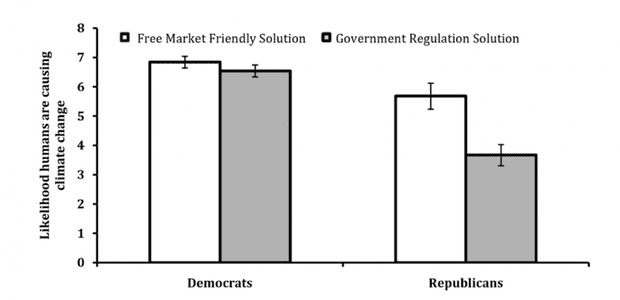
In stark contrast to the shortcomings of previous international climate negotiations, the Paris COP21 talks have ended with an agreement stronger than most expected. Graham Readfearn summarized the agreement for The Guardian.
The guts of the agreement hang off the so-called “long-term goal” that commits almost 200 countries to hold the global average temperature to “well below 2°C” above pre-industrial levels and to “pursue efforts to limit the temperature increase to 1.5°C”.
The long-term goal also states that “in accordance with best available science” that “in the second half of this century” the world should get to a point where the net emissions of greenhouse gases should be zero.
The deal also puts into the agreement the 186 pledges submitted to the United Nations to stop the growth of greenhouse gas emissions, mainly from burning fossil fuels.
Those pledges on their own will miss the 1.5C target by a long way, but the agreement also includes a rule where nations must renew their pledges every five years. Each pledge “will represent a progression”.
In short, leaders from around the world have agreed that we must do everything we can to slow global warming as much as we can, submitted pledges to begin the process of cutting carbon pollution, and created a framework by which those pledged cuts can be expanded and strengthened to achieve the goal of limiting the damages of human-caused climate change. There was unanimous agreement about this including from Saudi Arabia, China, India, and the USA. President Obama hailed the agreement at the White House.
President Obama discusses the COP21 agreement at the White House.
While the Paris talks were ongoing, a group of fossil fuel-funded climate contrarians held their own sparsely-attended movie event and “counter-conference.” Their ringleader Marc Morano complained of the COP21 conference, “They haven’t been too friendly to sceptics this year.”
Indeed, those who deny the scientific evidence were ignored; instead, scientific arguments in favor of an even more stringent target of limiting global warming to 1.5°C above pre-industrial temperatures won the day.
If we’re honest, the climate “debate” and science denial are not actually about science. Most who reject the consensus of 97% of climate experts do so because they prefer the status quo and object to the proposed solutions. This was made clear by a 2014 study showing that Republicans are far more likely to reject the science when told the solution involves government regulation than when they’re told free market solutions are available. It’s ideology, not science.

From Campbell & Kay 2014, “Solution aversion: On the relation between ideology and motivated disbelief” Journal of Personality and Social Psychology, 2014, Vol. 107, No. 5, 809–824. Published by the American Psychological Association.
Thus the climate wars have been about policy, not science, and international climate negotiations are the ultimate battlefield. To this point, contrarian efforts to undermine these negotiations have succeeded, but in Paris they failed. The whole world agreed, we need to stop delaying and start getting serious about preventing a climate crisis. We’ve turned the corner; climate denial is no longer being taken seriously. The world has moved on, and contrarians have become irrelevant relics of the fossil fuel age.
The good news is that while the Paris agreement didn’t include specific policies, there are indeed free market solutions available. For example, there’s a consensus among economists that a carbon tax is the most efficient way to cut carbon pollution, and if made revenue-neutral, represents a small government solution that many conservatives support, with studies showing it would be good for the economy even without considering the economic benefits of minimizing climate damages.
Posted by dana1981 on Monday, 14 December, 2015
 |
The Skeptical Science website by Skeptical Science is licensed under a Creative Commons Attribution 3.0 Unported License. |